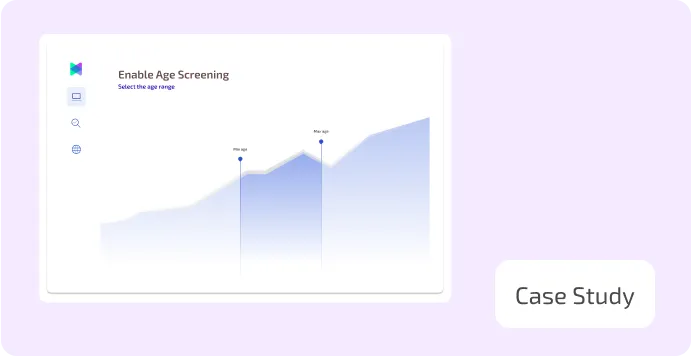.webp)
Published on
March 18, 2025
PEP Screening: Regulations, Best Practices, and Regional Insights
In this story

Comply quickly with local/global regulations with 80% less setup time
.svg)
.svg)
The spotlight on Politically Exposed Persons (PEP) screening intensifies in the intricate landscape of financial compliance, especially with regard to PEP KYC. Effective KYC procedures, including focusing on PEP in KYC, are paramount, shielding organizations from corrupt funds. Neglect invites significant fines, highlighting the gravity of robust screening.
This guide delves into the definition of PEPs, emphasizing the significance of politically exposed persons screening in the context of PEP KYC. It addresses challenges, recommends best practices, explores technological solutions in this context, and gives examples of politically exposed persons. Additionally, it underscores the importance of PEP in KYC for comprehensive compliance.
Who are PEPs?
A Politically Exposed Person (PEP), as per FATF Recommendation 12, is an individual entrusted with prominent public functions, covering heads of state and senior politicians and extending to close associates and family members.
According to global standards, PEPs encompass individuals holding influential public roles, posing high risks due to potential involvement in bribery, corruption, and terrorist financing. Businesses engaging with PEPs must take extra precautions to prevent unintentional facilitation of financial crimes. They have access to public funds and policymaking influence.
Examples of politically exposed persons include those with significant public roles, like heads of state, government officials, and family members.
Types of PEPs
Given the comprehensive definition of PEPs, the FATF has categorized them into three primary groups: Foreign, Domestic, and International Organization PEPs.
1. Foreign PEPs
These individuals have served or are serving significant public roles in a foreign nation. The risk linked to foreign PEPs is typically higher due to the challenges in obtaining accurate and timely data about these individuals.
2. Domestic PEPs
Refers to individuals with noteworthy public functions within their home country. Domestic PEPs present a risk, although generally lower than their foreign counterparts.
3. International Organization PEPs
Individuals who have held or currently hold high-ranking positions in international organizations make up this category. The associated risk varies depending on factors such as the organization's transparency, the individual's specific role, and the level of oversight exercised.
What is PEP Screening?
Politically exposed persons screening is critical to strong Anti-Money Laundering and Know Your Customer (AML/KYC) programs. It involves identifying and conducting due diligence on politically exposed persons (PEPs) during the account opening process. This screening helps assess the potential risk associated with doing business with an applicant who holds or has held prominent public functions. It generally helps with PEP risk assessment.
During the account opening process, AML PEP screening aids in determining the applicant's PEP status and the associated risk level. Depending on jurisdiction and the financial institution's risk profile, an account may proceed to open, but it necessitates careful analysis and enhanced due diligence. Ongoing monitoring of PEP status is advisable, considering the evolving nature of politics and influence, ensuring the effectiveness of AML/KYC programs.
Why Screen for PEPs?
Screening for PEPs is crucial due to their influential positions, making them susceptible to bribery, corruption, and money laundering risks. Instances, such as the FBI linking Ohio politicians to a $60 million bribery scheme, highlight the urgency in mitigating these threats.
PEP screening is essential for risk mitigation and is legally mandated in many countries. For instance, the USA Patriot Act's Section 312 specifies enhanced due diligence for senior foreign political figures. It emphasizes increased monitoring of their financial activities.
Engaging with corrupt PEPs in the financial sector poses severe reputational risks. This can lead to negative consequences. Even if ignored, awareness of funds from corruption or serious crimes may lead to criminal charges for financial institutions and their employees. AML PEP screening prevents crimes like bribery and corruption. It detects high-risk individuals and ensures compliance with local and global regulations.
Comply quickly with local/global regulations with 80% less setup time
.svg)
.svg)
How are PEPs Screened?
PEPs undergo screening within a risk-based due diligence framework. This guides decisions on onboarding and ongoing risk monitoring. Politicians, judges, and sporting officials globally are dynamic. This requires perpetual updates to PEP lists.
Organizations benefit from technology integrated with regularly updated PEP databases. This integration enables constant risk screening. PEP screening is a component of KYC. It is often combined with adverse media screening and sanctions data. This forms a comprehensive risk-based compliance approach.
Setting Up a PEP Screening Process
Establishing a PEP screening process involves strategic steps:
- Risk Identification: Determine PEP risks and obligations based on business and jurisdictional factors.
- Software Selection: Choose PEP screening software aligned with identified PEP lists.
- Customization: Tailor internal controls, procedures, and screening tools for effective PEP risk management.
- Integration: Incorporate PEP screening software seamlessly into existing systems and workflows.
- Team Education: Train personnel on software utilization and the significance of PEP compliance.
- Routine Screening: Conduct PEP screening during KYC processes and regularly for all customer interactions.
- Continuous Updates: Stay up-to-date with changes to PEP lists, adjusting the screening program accordingly.
- Monitoring Effectiveness: Develop procedures to evaluate and adapt the screening program's effectiveness.
Challenges in PEP Screening
Navigating PEP screening poses various challenges for businesses, influencing its overall efficacy. These hurdles encompass:
1. Ensuring PEP Data Accuracy
Maintaining the accuracy of PEP data proves challenging as lists undergo frequent updates. Businesses must invest in keeping their screening software current. This investment will help them promptly identify emerging risks.
2. Comprehensive Compliance
Establishing a strong PEP screening program demands substantial investments in resources, time, and finances. Achieving comprehensive compliance is crucial but requires a commitment of significant organizational resources.
3. Navigating Diverse Regulations
PEP regulations vary globally, challenging businesses to stay informed and compliant across different jurisdictions.
4. Data Quality Assurance
The precision of PEP screening outcomes hinges on the data quality employed. Poor data quality can lead to false negatives, exposing businesses to the risk of substantial fines and compromising the effectiveness of the screening process.
Read more: Top AML Fines and Penalties You Should Avoid in 2024
5. Managing Data Volume
Efficiently processing substantial amounts of customer data while minimizing false positives proves a formidable task for businesses with extensive customer bases and high transaction volumes.
Best Practices for PEP and Sanction Screening
Implementing best practices for PEP and sanction screening is crucial to ensure effective risk management and PEP Anti-Money Laundering compliance. This section provides insights into recommended approaches and strategies to enhance PEP screening processes.
1. Utilize Comprehensive Data Sources
Integrate with diverse, high-quality, trusted data sources to ensure comprehensive and up-to-date screening of customers. Ideally, consolidate this data in a unified platform alongside other watchlist databases.
2. Adopt a Risk-Based Approach
As part of your anti-money laundering PEP check, embrace a risk-based approach recommended by FATF for PEP screening. Conduct internal risk assessments to define politically exposed individuals according to institutional policies and risk tolerance.
3. Implement Ongoing Monitoring
Automate continuous monitoring of individuals and entities against the latest PEPs and sanctions lists. Daily monitoring helps detect changes in a customer's circumstances or status promptly, ensuring ongoing compliance with AML regulations.
4. Deploy Cutting-Edge Technology Platforms
Enhance screening processes by relying on best-in-class AML/KYC solutions. Implement technology platforms that leverage artificial intelligence and machine learning to reduce false positives, automate workflows, and efficiently screen customers against sanctions and PEP databases using a single API-led solution.
5. Embrace Automation for Efficiency
Implement automatic watchlist screening and ongoing monitoring alongside a global identity verification platform. This automated approach not only enhances efficiency but also makes it challenging for corrupt individuals to launder illicit funds, thereby safeguarding the reputation and integrity of financial institutions.
6. Due Diligence Checks and Approvals
Applying due diligence procedures based on risk levels is essential during the PEP screening. Documenting an individual's political exposure duration, title, and country strengthens PEP risk assessment. Understanding the purpose and nature of the relationship also helps. Senior management approvals, well-versed in financial crime risks, are crucial for PEP relationships.
Regulatory Landscape: PEP Screening Requirements
International standards, such as FATF recommendations and national regulations, dictate the need for robust PEP screening. Below are PEP Screening requirements in different countries.
1. The United States
In the United States, there is an obligation for Politically Exposed Person (PEP) screening. This includes screening for foreign PEPs and international PEPs. However, there is no mandatory screening for domestic PEPs. It is worth noting that in the U.S., the term "foreign official" refers to individuals with PEP status.
The Bank Secrecy Act and the Patriot Act specify the screening requirements. Firms are advised to incorporate PEP screening into their risk-based AML/CFT programs. This entails exercising reasonable judgment to integrate appropriate screening processes, including Customer Due Diligence (CDD) measures and Enhanced Due Diligence (EDD) for higher-risk PEPs. Suppose a firm detects or suspects a PEP may be involved in money laundering activities. In that case, it must submit a Suspicious Activity Report (SAR) to the Financial Crimes Enforcement Network (FinCEN).
2. The United Kingdom
The United Kingdom has a comprehensive obligation for Politically Exposed Person (PEP) screening. It includes screening for both foreign and domestic PEPs and international PEPs. Even after leaving the European Union, the UK still follows PEP screening requirements. The Financial Conduct Authority (FCA) regulates them.
Financial institutions operating in the UK must follow these screening obligations. This is part of their broader AML/CFT compliance measures. The FCA provides guidelines and directives to ensure effective PEP screening processes. It emphasizes the importance of due diligence in identifying and monitoring politically exposed individuals to mitigate the risk of financial crimes.
3. The United Arab Emirates (UAE)
In the UAE, correctly identifying and classifying customers as PEPs or Related Customers is crucial in the Customer Due Diligence (CDD) process preceding any business relationship. Financial institutions must establish robust risk management systems, as required by Article 15 of the AML-CFT Decision. They must determine if a customer or its beneficial owner is a foreign PEP, domestic PEP, or High-Risk Individual (HIO). Practical application underscores the significance of conducting onboarding and ongoing customer screenings.
Read more: An Overview of Anti-Money Laundering (AML) Laws in the UAE
Screening procedures include PEP status-related questions in onboarding forms or interviews; however, financial institutions (LFIs) are cautioned against relying solely on customer declarations. Instead, LFIs should augment basic screening inquiries with additional due diligence, including investigations into employment details, job titles, sources of funds, wealth, and searches of public records or proprietary databases. LFIs must remain vigilant for red flags, such as irregular financial transactions, ownership of shell companies by individuals with limited assets, or engagement in complex transactions lacking a clear economic purpose.
Ongoing monitoring is crucial for LFIs to identify changes in a customer's PEP status, especially as individuals may transition immediately from non-PEP to PEP status upon assuming a prominent public function. Continuous monitoring also facilitates reassessment of the necessity for enhanced measures when a PEP customer loses their prominent public function.
4. The Kingdom of Saudi Arabi (KSA)
In Saudi Arabia, financial institutions must implement strong risk management systems to identify PEPs among clients or potential clients and their beneficial owners. Accounts associated with PEPs are deemed higher risk. This requires the Authorized Person to conduct enhanced ongoing monitoring. The opening or continued operation of a PEP account requires senior management's approval. If a client or beneficial owner is discovered or becomes a PEP after acceptance, the Authorized Person must seek senior management approval to sustain the business relationship.
Furthermore, measures must be taken by the Authorized Person to ascertain the source of wealth and funds for PEPs who are clients or beneficial owners. These stringent requirements ensure heightened scrutiny and due diligence in handling financial relationships involving PEPs in the Kingdom of Saudi Arabia.
Read more: Anti-Money Laundering Compliance in Saudi Arabia
How Does FOCAL Help in PEP Screening?
FOCAL is an all-in-one AML compliance suite designed to enable financial institutions and businesses to confidently screen customers, monitor transactions, and assess risk through robust AI and seamless automation.
FOCAL also incorporates advanced features that enhance the efficiency and effectiveness of the PEP screening process, enabling businesses to screen against over 1300 sanctions, PEPs, and Relatives and Close Associates (RCA) watchlists.
In conclusion, mastering PEP screening in banking and financial institutions is imperative. Adhering to regulatory requirements, implementing best practices, and embracing technological solutions like FOCAL can strengthen the defense against illicit activities linked to politically exposed persons.
FAQs
Q1. Why Is It Important To Screen Against PEPs?
Screening against Politically Exposed Persons (PEPs) is crucial to mitigate the risk of financial institutions being involved in money laundering, corruption, or other illicit activities associated with individuals holding prominent public positions.
Q2. How Long Does An Individual Remain Classified As A PEP?
The duration of an individual's classification as a Politically Exposed Person (PEP) is not universally fixed. It varies across jurisdictions. Regulators advocate for a risk-based approach. This approach considers factors such as the potential informal influence, the seniority of the PEP's position, and the relevance of their current or past functions instead of predetermined time limits. This approach aligns with recommendations from US, UK, and EU regulatory bodies.
Q3. How Do Financial Institutions Identify A Politically Exposed Person?
Financial institutions identify PEPs through robust Customer Due Diligence (CDD) and Enhanced Due Diligence (EDD) processes, risk management systems, and ongoing monitoring. This involves checking against PEP databases, conducting background checks, and verifying sources of wealth.
Q4. Who Publishes PEP Lists?
Government authorities, financial regulatory bodies, and international organizations typically publish PEP lists. These lists help financial institutions identify individuals with a high risk of involvement in financial crimes.
Q5. What Are The Regulatory Requirements Regarding PEPs?
Regulatory requirements for PEPs include implementing risk-based approaches, conducting due diligence, obtaining senior management approvals for PEP relationships, and adhering to Anti-Money Laundering (AML) and Counter-Terrorist Financing (CTF) regulations.
Q6. What Are The Consequences Of Non-Compliance?
Non-compliance with PEP screening regulations can lead to severe consequences, including legal and regulatory actions, reputational damage, and broader adverse impacts on financial institutions.
Comply quickly with local/global regulations with 80% less setup time
.svg)
.svg)

How Aseel reduced onboarding time by more than 87% using FOCAL
Learn how FOCAL empowered Aseel to achieve new milestones.
.svg)
.svg)
Mastering Fraud Prevention: A Comprehensive Guide for KSA and MENA Businesses
51% of organizations fell victim to fraud in the last two years, don't be caught off guard, act proactively.
.svg)
.svg)
Featured blog posts





AI-Driven Precision in Fraud Risk and AML Compliance
.svg)
.svg)

.svg)
.png)




.svg)


.webp)

.png)
.webp)
.webp)


.svg)








%20(1).webp)
Comments
Leave a Reply
Comment policy: We love comments and appreciate the time that readers spend to share ideas and give feedback. However, all comments are manually moderated and those deemed to be spam or solely promotional will be deleted.